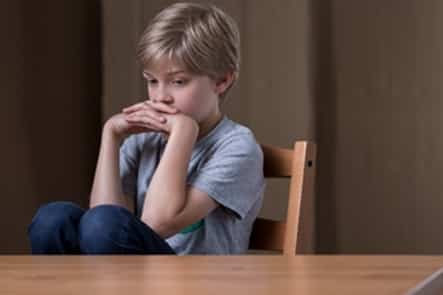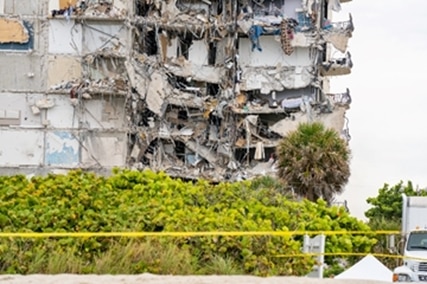As IAFF members continue to search for survivors in the Surfside condominium collapse, peer support teams have been on the ground since June 28, providing critical emotional support to impacted fire service professionals and their families. In the aftermath of natural or manmade disasters, many parents struggle with how to talk to their children. While fire fighters are ready to respond to crises everyday, responding to the emotional needs of children can be a more complex task.
Talking to your kids after a disaster is never easy, as every child responds to traumatic events differently. While you can’t control what disasters and events occur in the world, you can support their ability to cope with tragedy. Here are some points to consider.
Age
In the aftermath of a disaster, the developmental stage of your child should guide your approach. For kids ages 0–5, unless they were directly exposed to the event, they may not need a direct explanation. Instead, look out for any changes in eating, sleeping and social behavior. At this age, children value predictable routines and consistent attachment to caregivers above all else. For children ages 4–5, it may be appropriate to provide a simple concrete explanation like, “A building fell down and people got hurt, but many crews are working to help them. Our family is safe.”
For kids ages 6–11, it’s important to determine what your child already knows or believes about the disaster. Then, acknowledge the broad facts of the disaster, while encouraging your child to ask questions and express thoughts, feelings or observations. While avoiding this discussion may feel more comfortable in the short term, not directly acknowledging a traumatic event may produce more anxiety for your child when they need stability and reassurance.
While teenagers may seem to have little reaction to a disaster initially, they understand that death is real, inevitable and irreversible. As a primary adult in the life of your teen, you have a critical opportunity to explore some important life lessons. Tragedy and death are a part of life, and sometimes bad things happen to good people for no reason. When these things happen, it’s perfectly normal to feel sad, angry, confused or that life will never be the same. Be honest with your teen that you do not have all the answers, but you are ready to listen when they are ready to talk.

Helping Your Child Cope
Regardless of what type of disaster occurred, children of all ages need to know they are physically safe and that their parents are safe. Children need reassurance that the adults in their life — parents, teachers, fire fighters and police — are doing everything possible to keep their world safe.
To help your child or teen cope, consider the following strategies:
- Give your child extra time and attention, even if they seem normal. Express love and support for your child, while looking out for changes in mood, behavior, social interaction, diet and sleep.
- Limit your child’s exposure to television, social media, internet and radio. While it’s important for children to understand the basic facts of what occurred, they will not benefit from repeated exposure to graphic details and video images.
- Stay consistent with daily routines, such as pick-up and drop-off schedules and family meals. Routines help convey a sense of normalcy to a child or teen and send the message, “Even though this tragedy occurred, I am still here for you and your world is not changing.”
- Encourage your child to express their feelings through existing interests, such as imaginary play, listening or playing music, dance, exercise or writing.
- Coach your child on setting boundaries in conversation if they do not want to talk about the disaster with other kids and people outside the home.
For fire fighters, convincing your children you are safe is a more complicated message. Don’t offer false realities or promises that you cannot keep. Instead, acknowledge your childrens’ fears and the inherent risks of your job, while offering assurance that fatal events do happen, but are exceedingly rare. Educate your kids on the numerous precautions that are taken to ensure your safety on the job or during a rescue operation. When you are off duty and feel the time is right, consider taking your child to visit your firehouse to introduce them to some of the crew members and equipment that helps keep you safe.

Signs to Watch for in Kids
Just like adults, no child responds to disaster or tragedy the same way. As a parent, your main responsibility is to convey unconditional love and support to your child, listen when they are ready to talk, and continue taking care of yourself. Your child’s response will be influenced by a number of factors, including:
- Their level of direct exposure to the disaster
- Their exposure to disaster related death or injury
- Their previous experience of traumatic events
- Stress caused by secondary disaster effects (e.g. having to live in a different house, attending a different building for school, cancelled extracurricular activities, etc.)
Despite your efforts and communication, some children and teens will still have a tough time processing their grief, shock or trauma following a disaster. If your child is displaying any of these signs, consult with your child’s teacher, counselor or physician for access to a mental health professional:
| Physical Signs | Emotional Signs | Behavioral Signs |
|
|
|
Acknowledge Your Own Reaction
Regardless of the type of disaster, kids will take cues from their parents on how to cope. Teach your kids it’s okay to talk about feelings, ask for help and find healthy outlets to manage pain. For example, “Mom and Dad feel sad (or scared) too. We don’t know why this happened, but we know we love you.” By acknowledging your own feelings in response to a tragic event, you are modeling a crucial life skill that all kids need: emotional intelligence.
Written by: Lauren Kosc, LCPC, is a behavioral health specialist, licensed mental health clinician and blog writer for the International Association of Fire Fighters.
